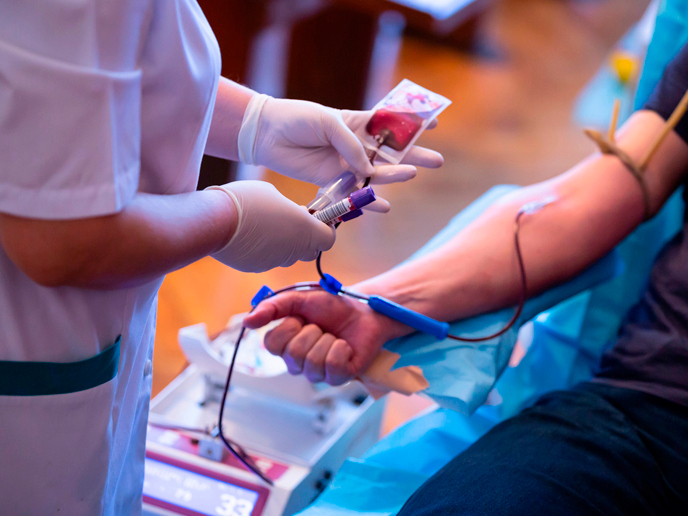Early diagnosis of cancer with a simple blood test
Protein glycosylation, the enzymatic linkage of sugars with amino acids of proteins, is a post-translational step in protein production that is important for physiological and disease processes, including cancer. In order to develop technologies that can be used for rapid and accurate HTP analysis of glycosylation from a simple blood test, scientists initiated the EU-funded project GLYCOHIT(opens in new window) (Glycomics by high-throughput integrated technologies). One of the main focuses was on the improvement of existing techniques. To that end, the consortium developed a sensitive, robust ultra-performance liquid chromatography and hydrophilic interaction chromatography (UPLC-HILIC) method for analysis of a specific sugar-protein linkage in clinical samples. The UPLC-HILIC method and data analysis techniques were validated using samples from breast cancer patients, and new potential glycan markers were identified. Asparagine (N)-linked sugars (N-glycans) are associated with cancer pathogenesis. Scientists developed an HTP method for liquid chromatography coupled to atmospheric pressure ionisation tandem mass spectrometry (LC-MS/MS) for identification of protein glycosylation sites together with an automated analysis method. Novel methods were also developed to speed up the analysis and enhance glycobiomarker detection sensitivity. Lectin microarrays use lectins (proteins that bind to specific sugars) immobilised on a substrate to detect the presence of glycans in a sample. Investigators have developed new sources of lectins, including rationally designed lectin mimics or glycan-binding molecules. This effort resulted in creation of lectin array platforms for rapid and reliable detection of glycobiomarkers and analysis of glyco profiles in large sample sets. In conclusion, GLYCOHIT developed label-free sensor platforms for the analysis of cancer-associated glycobiomarkers in a rapid, specific and sensitive manner. Application of new biomarkers and lab technologies in clinical practice should reduce diagnosis time to minutes rather than days.







